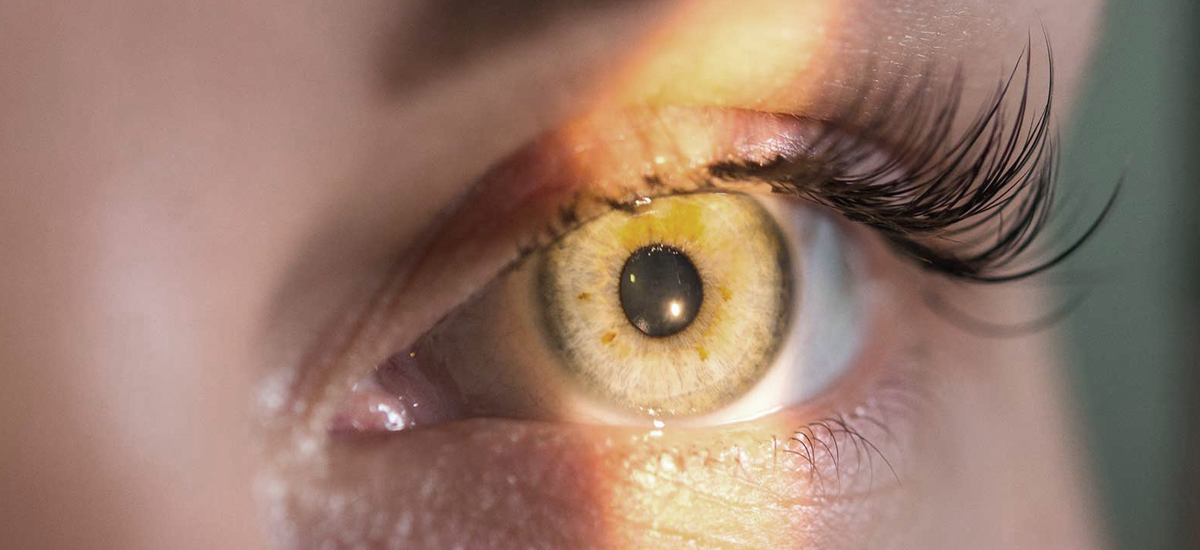When Should You Get Progressive Lenses?

Many types of multifocal lenses have a line through the center that distinguishes prescriptions. Since this eyewear provides excellent optical coverage, the line doesn’t usually bother the wearer.
However, others prefer glasses without a line (for cosmetic purposes) and the same vision correction that bifocals and trifocals provide. That’s where progressive lenses come in.
So, when should you get progressive lenses? Let’s discuss this.
When should you get progressive lenses?
Determining the best eyewear for you depends on your overall eye health and prescription. Before an eye doctor near you prescribes corrective lenses, they’ll want to conduct a comprehensive eye exam to test your visual acuity and general optical wellness.
In some cases, they may recommend multifocal lenses, or more specifically, progressive lenses. Here’s when you should get progressive lenses (or at least consider them as an option):
#1: You should get progressive lenses if you have multiple prescriptions.
Many people need several prescriptions to get crystal-clear vision. Sometimes, you can have farsightedness, nearsightedness, and other vision conditions--which can make it challenging to see.
Instead of shopping for several pairs of glasses to cover these prescriptions, why not choose progressive lenses? They include three prescriptions, giving you flexibility in your eyewear choices.
There are indeed some problems with progressive lenses, such as a long adjustment period for some people. However, they’re an excellent type of eyewear that can give you all the visual coverage you need--without the pesky lines known to bifocals and trifocals.
Another fun fact about progressive lenses is that they’re suitable for children. If your child’s eye doctor informs you that your child has hyperopia and myopia, consider progressive lenses. You’ll be happy you did.
#2: You should get progressive lenses if you have presbyopia.
When you enter your 40s, you’re at a higher risk for presbyopia--but don’t worry, as it’s not as scary as it sounds. Presbyopia simply means the lenses in your eyes can’t move with as much ease as they used to, which can cause issues with your near vision.
Many adults with presbyopia turn to progressive lenses for the best vision correction without lines. And if you have presbyopia and astigmatism, progressive lenses can be an effective treatment method.
The next step would be to consult with your eye doctor on the best types of progressive lenses for your eye concerns. You’ll find that there are many kinds of progressive lenses available, including standard, short corridor, computer, premium, and ground view.

Here’s a quick breakdown:
- Standard progressive lenses are ideal if you want something affordable and suitable for most prescriptions. However, one problem with these progressive lenses is that they can limit your reading area if you select small frames.
- Short-corridor progressive lenses are perfect if you desire small frames. Just keep in mind that these lenses can reduce how much room you have to read, so choose accordingly.
- Computer progressive lenses are the way to go if you spend several hours per day on the computer or other digital devices. (Don’t forget to ask your optometrist about Blue Protect as an extra add-on to protect your eyes from blue light exposure!)
- Premium progressive lenses are an excellent choice if you want the best vision without concern for the cost of your progressive lenses. When you get this type of progressive lens, you can look forward to crisp vision near and far.
- Ground-view progressive lenses are helpful if you are athletic and need to glance at the ground often to stay at the top of your game. Enjoy distortion-free vision with this form of eyewear.
Summary: How do you know if you need progressive lenses?
Knowing when to get progressive lenses starts with a visit to your local optometrist. At your comprehensive eye exam, the eye doctor will find out if you need prescription eyewear, and if it turns out you do, they may recommend multifocal lenses.
When should you get progressive lenses instead of other multifocal lenses, including bifocals or trifocals? Progressive lenses are for you if you want glasses without lines but the same level of visual coverage.
There are many types of progressive lenses, and your specific eye condition and lifestyle may influence your choice. The important things to know are that progressive lenses can benefit you if you need more than one prescription or if you have presbyopia. Adults and children are also eligible, which opens up the options for the entire family.
Shop at For Eyes for your next pair of glasses
Show off your unique style and browse our wide variety of frames from your favorite brands for men, women and kids. Stop by your local For Eyes or order online at your convenience.











